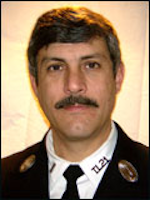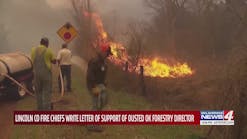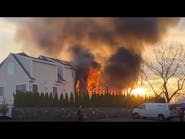A successful leader must be honest with themselves and crew members while maintaining a sense of loyalty.
Leaders need to be honest with the people they are supervising. Honest in their ability to lead them. Your people need to know what your experience is and isn't. They will be able to figure out if you're faking. We spoke of that in our discussion on building trust. People won't trust you if they think you are faking or worse, lying. If the leader is not getting it done he or she probably can't because they don't know how. This is a failure because they are not honest enough with themselves to admit it.
As a leader your people are expecting a certain level of performance from you. If you cannot deliver what they expect they will resent you. Then you will lose any respect that may come from your position as a leader. I have always said, "It is better to let them know then let them down." Asking for help is not a sign of weakness. It shows a certain level of confidence in that I know that I don't know everything, but I do know where to find the answer. It also means I respect the people I work with to have the answer. They will help you if you let them.
Your failure is a reflection on them as well. Their work is a reflection on your leadership. If they screwed up you screwed up. Do not cast blame on them. A leader who blames his or her people is insecure. There may be several reasons for the mistake. Some of them may be directly related to you. Were your orders misunderstood? Were they unsafe? Do they conflict with standing policies and procedures? Could it be you have not trained them to perform that particular task? Regardless of the reason why, the point still remains: if they screw up you have screwed up.
A leader must be loyal to the people they lead. Being loyal to your firefighters means standing up for them when they screw up and taking the hit. Sometime in your career your people will screw up. It's natural, we're human, and we all make mistakes. If you have trained them properly, these events will be few and far between. When it does occur a poor leader will blame everyone, but themselves. A good leader accepts the blame for his firefighters and moves on. A confident leader accepts correction and criticism as a means of self-improvement and then he goes back and corrects it. If your people are unaware they made a mistake they can't be expected to correct it. You as the leader are responsible for their continued poor performance if you fail to take action to correct it.
Correcting your members should then be done at an appropriate time. Corrective action should be taken as soon as possible after the event while it is still fresh in their minds. This does not mean embarrassing someone in front of others. "Punish in private, praise in public" is what works for me. As difficult as it is to tell people they've made a mistake you must be honest with them and make them understand it is not personal.
A leader that takes the credit when his or her members make noticeable accomplishments is also insecure. You may have taught them to do the work but they did it. Recognize them for it. Your superiors will see what you have done and notice you for it.
If they do well, you all did well. It must be recognized. We will discuss appropriate ways of rewarding good behavior when we get to the article on saying "thank you."
Integrity is an integral part of honesty. Integrity is what guides a person when no one is watching. It is their moral compass. They do what they do because it is the right thing to do. Integrity is what drives people who are loyal and honest. It is essential for people who are public servants. The civilians you serve should be confident in your ability and never question your integrity. Most of the time as firefighters, you will be interacting with civilians when they are the most vulnerable. They need to be assured that you are there to help them, not help yourself. The thought that the responding members could compromise a persons' life or property is appalling. The integrity of firefighters is a sacred trust.
A leader must also be loyal to the organization. This does not mean a leader must drink the Kool-Aid but must be true to the job that they perform. Dissenting opinions are good for an organization to explore possibilities. The way you are doing something may not be the only way or may not be the best way, but a healthy debate on change should be welcomed. The point here is whatever way you are doing it; it should be the same, all the time. The worst case is when you do one thing when one chief is working and another when another chief is working. That is not a standard operating procedure, which is personal preference.
Being a leader in an organization often means being the bearer of bad news. How you deliver the news is a mark of your loyalty to the organization. If you go to the troops and say, "the chief just came down with this new procedure and this is the way it going to be done from now on," but you say it by rolling your eyes and making other body gestures that indicate your displeasure, what message have you sent to the troops?
If you say the same thing and sound enthusiastic and positive about the change the members are more likely to embrace it in a more positive way. Often times as a leader especially in middle management, like company officers, you have very little input into the decision making process. So you are forced to accept the new policy and move on. This makes it difficult to be positive if you don't agree, but you still have to enforce it.
If the organization will accept recommendations for change and you are viewed as a loyal employee and not just seen as a carping critic you may be able to effect some change to the new procedure. If the general consensus is that the new procedure won't work then channel that energy to developing one that will. A good leader can control the negative energy and harness it to make it more positive.
There is a passage in the bible that says "the good Shepard stays when the wolves come, the hired hand will leave." Whether you are "there for the day" or assigned to the group, they are your people. You must work to support their needs. General Colon Powel stated, "The day solders stop bringing you their problems is the day you stopped leading them. They have either lost confidence that you can help them or concluded that you don't care. Either case is a failure of leadership."
The fire service, like other organizations, promote from within. Our firefighters become our lieutenants and captains and then become our chiefs. This is true in most of the departments across the country. This is where the private sector may be at a disadvantage.
Success and promotion may only come from a change in companies, or even other fields of work. This brings in people at a supervisory level without the history and tradition of the company. I feel it is always best promote your own employees. This also promotes a greater sense of loyalty in your employee. They will stay with the company longer be more productive if they feel that their hard work will be rewarded.
If your organization is to succeed you must recruit, train and retain the best of the job market. If your goal is to have smarter chiefs start with smarter firefighters and train them to be smarter lieutenants and captains and you will have smarter chiefs. Leaders must recognize the potential in all members of their organization.
Everyone in the organization needs a clear understanding of the mission and their role in executing it. Let them know honestly what you expect and give them the room to work. Be honest with yourself and with your people and expect the same in return it will pay dividends in building trust. Once you have their trust you will be able to build a rock solid team.
In our next article we will discuss in more detail the concept of team building, until then stay safe.
Questions and comments are welcomed, send them to [email protected].
Look for the next article, "The Journey: Understanding Value."
CHRISTOPHER FLATLEY, a Firehouse.com Contributing Editor, is a 20-year veteran of the FDNY and a lieutenant currently assigned to Ladder Company 21 in Manhattan. Chris has twice served as chief of the Blauvelt, NY, Volunteer Fire Company and is currently the assistant chief and training coordinator. He is a nationally certified Fire Instructor 1 and is an instructor at the Rockland County, NY, Fire Training Center and holds a degree in fire protection technology. He is a Master Exercise Practitioner on the Exercise Design Team through the Center for Terrorism and Disaster Preparedness. You can reach Chris by e-mail at: [email protected].

Christopher Flatley | Firehouse.com Contributor
Lt. Christopher Flatley is a 20-year veteran of the FDNY, currently assigned to Ladder Company 21in the "Hells Kitchen" section of Manhattan. Prior to promotion he worked in Ladder Company 2 in "Midtown". He is a Master Exercise Practitioner on the Exercise Design Team through the Center for Terrorism and Disaster Preparedness. He is a member of the Incident Management Team and Family Assistance Units.
Chris has twice served as Chief of the Blauvelt Volunteer Fire Company and is currently the Assistant Chief and training coordinator. He is a Nationally Certified Fire Instructor 1 and is an instructor at the Rockland County Fire Training Center, Pomona N.Y. and holds a degree in Fire Protection Technology.
He has presented seminars and lectured nationally on various fire service topics and has written articles for leading fire service publications including WNYF, the official publication of the New York City Fire Department and Size Up the New York State Association of Fire Chiefs quarterly magazine. You can reach Chris by e-mail at: [email protected]





